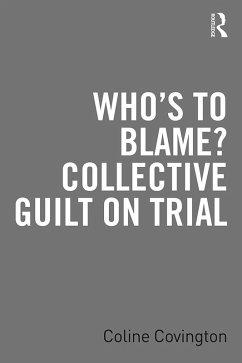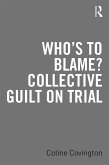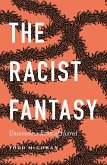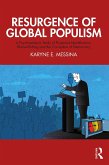Coline Covington explores various aspects of social and collective guilt and considers how both perpetrators and victims make sense of their experiences, with particular reference to group behavior and political morality. Covington challenges the concept of collective guilt associated with the aftermath of large-scale atrocities such as the Holocaust and examines the moral pressure placed on perpetrators to exhibit guilt as part of a realignment of political power and a process of restoring social morality. Who's to Blame? Collective Guilt on Trial concludes with a chapter-length case study examining Russia's war in Ukraine.
Combining psychoanalytic ideas with political, philosophical and social theory, Who's to Blame? Collective Guilt on Trial will be of great value to readers interested in questions of collective guilt, blame and the possibilities of atonement. It will also appeal to psychoanalysts in practice and in training, and to academics of psychoanalytic studies, political philosophy, sociology and conflict resolution.
Dieser Download kann aus rechtlichen Gründen nur mit Rechnungsadresse in A, B, BG, CY, CZ, D, DK, EW, E, FIN, F, GR, HR, H, IRL, I, LT, L, LR, M, NL, PL, P, R, S, SLO, SK ausgeliefert werden.
"We live in an era when individuals pride themselves on their victim status, grievances are carefully nurtured, public apologies are de rigueur and reparations are constantly demanded of the formerly powerful. Covington's book cuts to the chase, subjecting our modern blame culture to forensic examination. She questions whether apologies of this sort make logical, historical or legal sense and what therapeutic emotional value they actually possess. A welcome breath of fresh, bracing air." - Michela Wrong, author of Do Not Disturb: The Story of a Political Murder and a Regime Gone Bad
"In this brilliant study of collective guilt, Coline Covington fuses together the disciplines of history, politics, and psychoanalysis, helping us to understand the profound effects of blame on perpetrators and victims across generations. Her writing is both lucid and learned throughout." - Charles Grant, Director, Centre for European Reform









